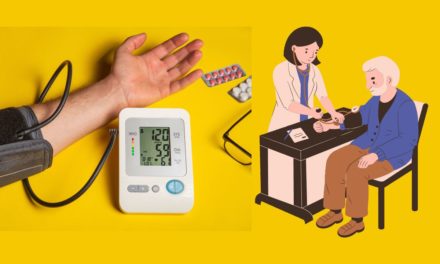Palpitations: Understanding, Treating, and Preventing Heart Rhythm Irregularities
Introduction:
Palpitations are a common phenomenon that many people experience, characterized by an increased awareness of palpitations or irregular heart rhythms. While often benign, palpitations can cause discomfort and anxiety. Understanding the nature of palpitations, recognizing potential causes and triggers, and implementing appropriate treatment and prevention strategies are critical in managing these irregular heart rhythms. In this article, we delve into the world of palpitations, exploring their causes, treatment options, and preventative measures.
1. Understanding the beat:
Palpitations refers to a feeling of racing, throbbing, fluttering, or irregular heartbeats. They can be spontaneous or triggered by various factors. Palpitations can be a symptom of an underlying medical condition or the result of external factors, such as stress or caffeine consumption.
2. Reasons and motivations:
Palpitations can be caused by a variety of reasons:
- a Emotional stress and anxiety: Intense emotions, anxiety, or panic attacks can cause palpitations.
- b Physical exertion: Strenuous exercise or intense physical activity can cause an increase in heart rate, resulting in palpitations.
- c Caffeine and stimulants: Caffeine, nicotine, energy drinks, or certain medications can trigger heart palpitations.
- d Medical conditions: Palpitations can be a sign of a variety of medical conditions, including arrhythmias (irregular heart rhythms), thyroid disorders, anemia, heart valve disorders, and heart conditions such as atrial fibrillation.
- e Medications and supplements: Some medications, such as those used to treat asthma or thyroid disorders, and some dietary supplements can cause palpitations as a side effect.
3. Symptoms and effects:
Palpitations can manifest in different ways and may be accompanied by other symptoms:
- a feeling of a racing or pounding heart
- b Fluttering or pulsating.
- c Chest pain or tightness.
- d Shortness of breath or difficulty breathing.
- e Dizziness or light-headedness.
Although palpitations are often harmless, they can cause distress, anxiety, and interference with daily activities.
Treatment options:
Treatment for palpitations depends on the underlying cause and severity of the symptoms. In many cases, no specific treatment may be needed, and lifestyle changes can help manage the condition. However, in certain situations, medical intervention may be required. The following methods are commonly used:
- a Lifestyle changes: Identify and avoid triggers such as stress, caffeine, and certain medications or supplements. Practicing stress reduction techniques, maintaining a healthy sleep routine, and engaging in regular physical activity can help regulate palpitations.
- b Medications: In cases where the palpitations are related to an underlying medical condition or arrhythmia, medications may be prescribed to regulate the heart rhythm or treat the underlying cause.
- c Procedures and interventions: In some situations, medical procedures such as catheter ablation or implantation of devices such as pacemakers may be necessary to manage beats caused by certain arrhythmias.
Prevention Strategies:
Although it may not be possible to prevent all cases of palpitations, some strategies can help reduce their occurrence:
- a Identify triggers: Keep track of activities, foods, and situations that trigger palpitations and try to avoid or manage them.
- b Stress management: Practice stress reduction techniques such as meditation, deep breathing exercises, or engaging in activities that promote relaxation.
- c Healthy lifestyle habits: Maintain a balanced diet, engage in regular exercise, limit caffeine and alcohol intake, and avoid smoking.
- d Regular check-ups: Schedule routine medical examinations to monitor overall heart health and discuss any concerns or symptoms.
- e Medication management: Follow the prescribed medication regimen and discuss any concerns or side effects with a healthcare professional.
Result:
Palpitations, while often benign, can be annoying and cause discomfort. Understanding the causes, recognizing triggers, and implementing appropriate treatment and prevention strategies are essential to managing these irregular heart rhythms. By practicing stress reduction techniques, avoiding triggers, and adopting a heart-healthy lifestyle, individuals can reduce the incidence of palpitations. Regular checkups with a healthcare professional can help monitor heart health and treat any underlying conditions. By prioritizing prevention, raising awareness, and getting the right medical care when needed, we can effectively manage stroke and ensure a healthier future for all.










